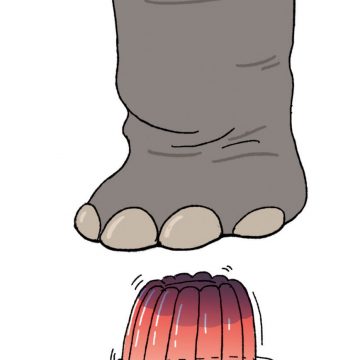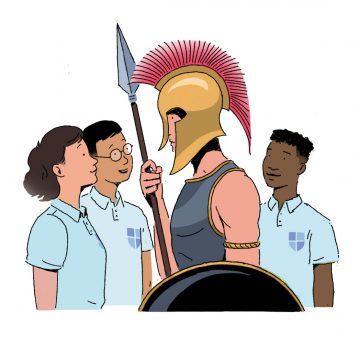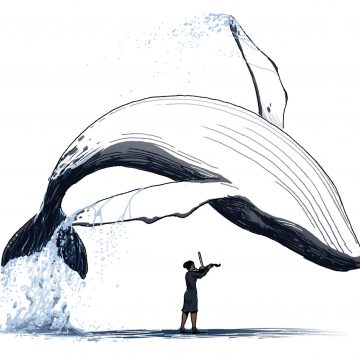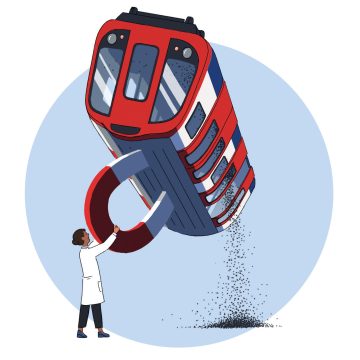Campendium: Easter Term 2023
Impact
£29.8bn The University’s impact on the UK economy, including research and development, educational exports, teaching and learning, and tourism.
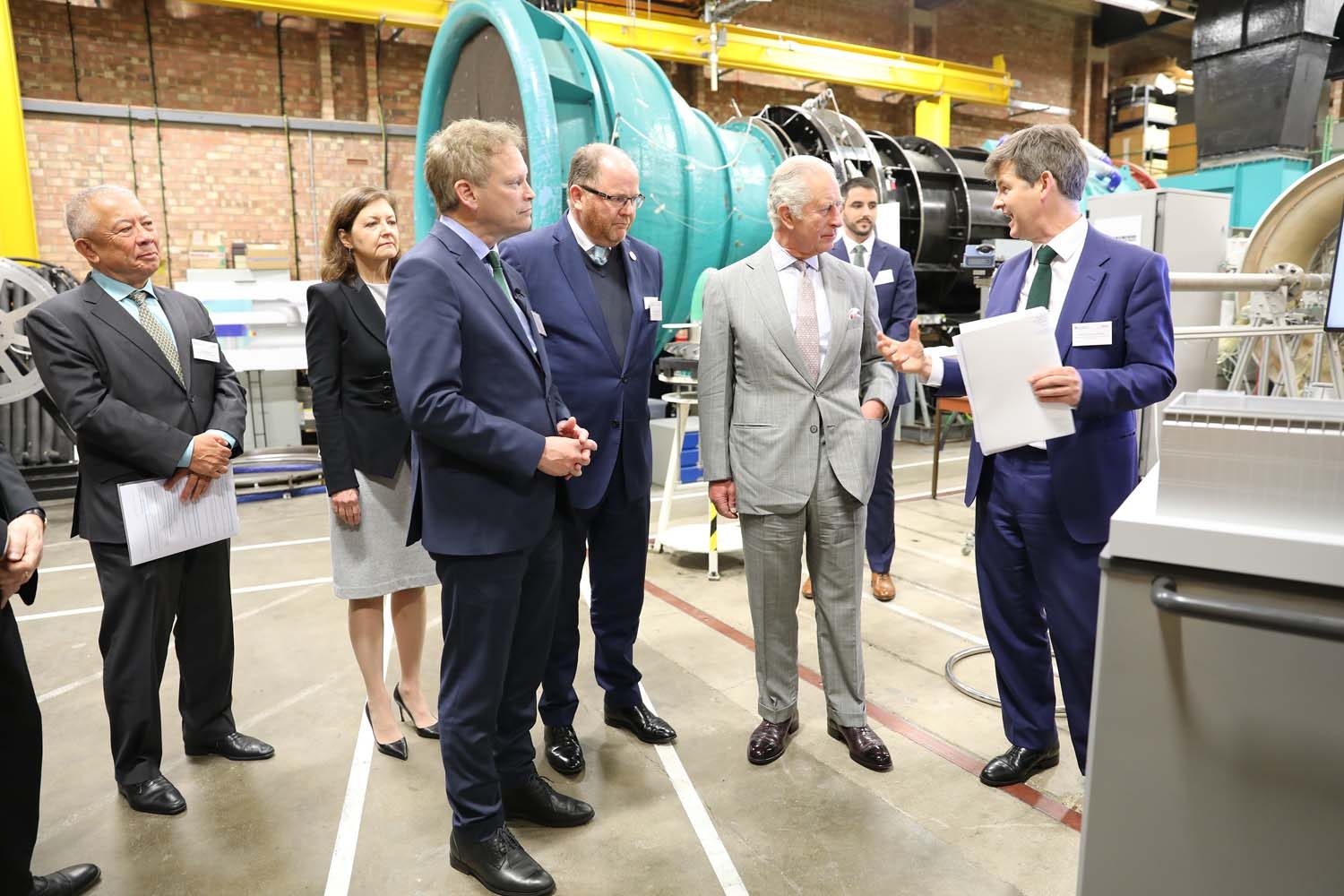
Aviation and energy
The King breaks ground on the University’s new Whittle Laboratory
His Majesty The King visited Cambridge to break ground on the new Whittle Laboratory, meeting with staff, leaders from the aviation industry and senior government representatives.
The new facility will incorporate the Bennett Innovation Laboratory – made possible through a philanthropic gift from the Peter Bennett Foundation – to bring together a critical mass of talent, giving them the right skills, tools, culture and environment to solve complex multidisciplinary challenges in energy and aerospace.
It can take six to eight years to develop a new technology to a point where it can be considered for commercial deployment in these sectors. But recent trials in the Whittle Laboratory have shown this timeframe can be accelerated by breaking down the barriers between academia and industry.
Senior figures from government and industry also gathered for an international roundtable, as part of an initiative led by Cambridge and MIT. This will present insights based on global aviation systems-modelling capabilities developed through the Aviation Impact Accelerator, a project led by the Whittle Laboratory and the Cambridge Institute for Sustainability Leadership.
“We need to completely transform the innovation landscape in the aviation and energy sectors if we are to reach net zero by 2050,” says Professor Rob Miller, Director of the Whittle Laboratory. “The lab is designed to work at the intersection of cutting-edge science and emerging engineering applications, providing fast feedback between the two and dramatically cutting the time to deliver zero-emission technologies.”
Are you a ‘super memoriser’?
Do you have an exceptional memory? Then join Cambridge scientists in their quest to find out why some people can recite entire books (while some of us can’t remember what we had for lunch). Start by taking the online test, and you could be invited to have a brain scan to explore what makes your memory so exceptional.
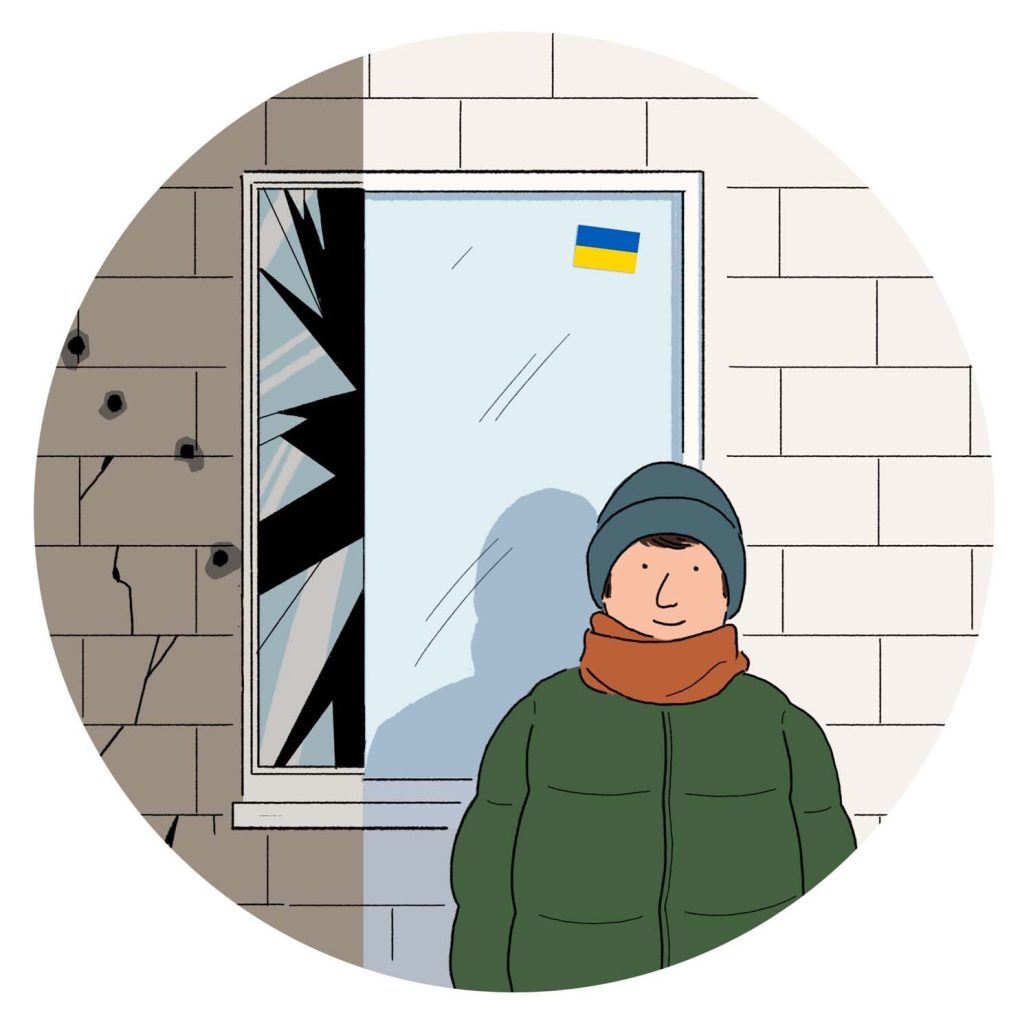
Deconstructed
PhD student’s Insulate Ukraine project is bringing relief to war-torn families
- A window that takes just 15 minutes to build is transforming the lives of Ukrainians who need to repair and insulate bomb-damaged properties.
- It was designed by Cambridge PhD student and engineer Harry Blakiston Houston, who has paused his studies to work on his Insulate Ukraine project.
- His design uses triple-glazed polyethylene to protect against the cold, costs around £12 per m2 of window, and can be built at home from basic materials.
- Insulate Ukraine has already installed hundreds of windows, and seeks partners to support its vital work.
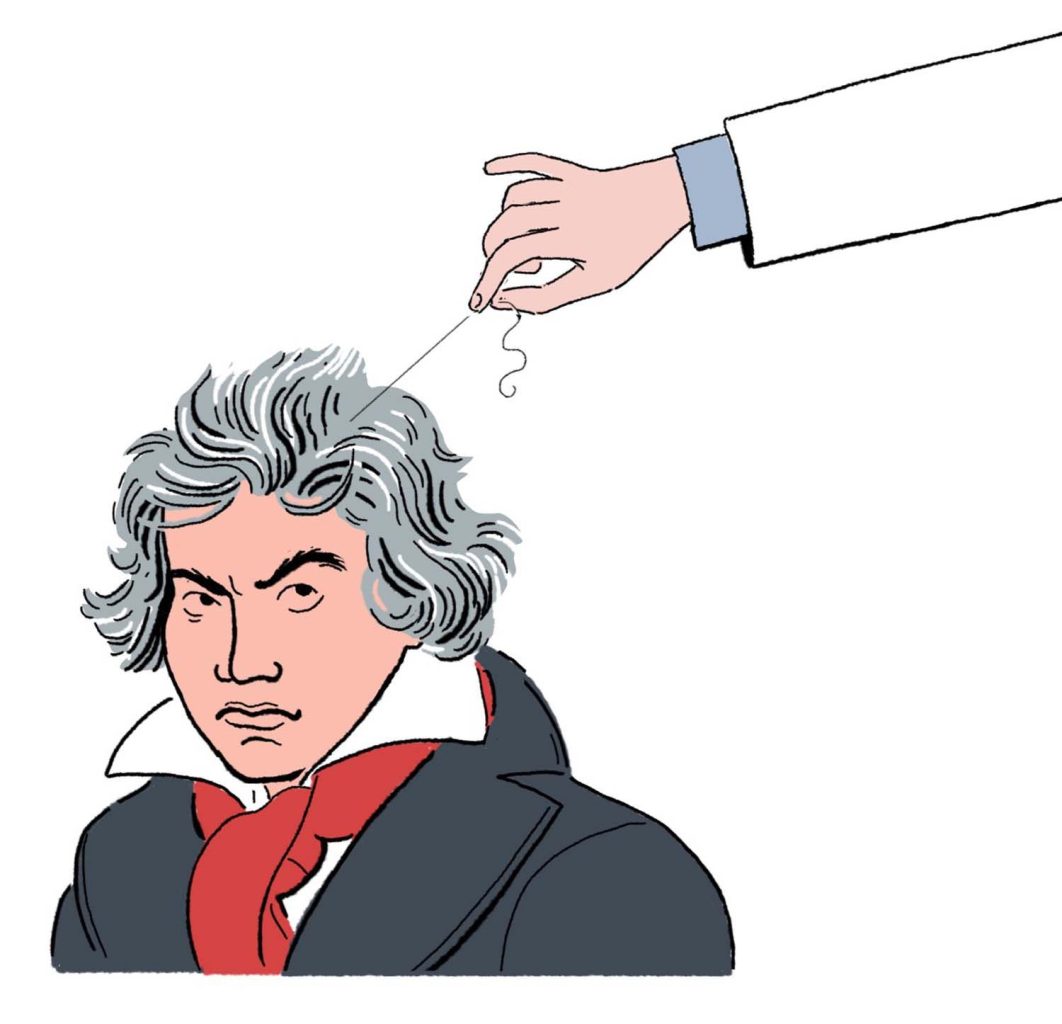
Three-minute Tripos
Beethoven’s genius extended from the tips of his toes to the top of his head. Discuss.
DA DA DA DUUUH!
What?
DA DA DA DUUUUUH!
Seriously. I get it. You’re Beethoven’s Fifth. But why?
Well, we’ve got a lot in common, me and Van B.
You’re a legendary composer whose oeuvre spans the transition from the Classical to Romantic period?
Well, no. But we both like a drink, and that’s bad news. A team led by Tristan Begg, until recently a Biological Anthropology PhD researcher, has sequenced Beethoven’s genome for the first time, using a lock of his hair. We know he drank, and now we may have a link to a genetic risk that could explain why it was harmful to him.
Some sort of message in a bottle?
Not quite. According to some of his contemporaries, his consumption was moderate – by 19th-century Viennese standards, anyway. But it may have been enough to trigger a harmful reaction in his liver.
But surely this breakthrough will have given us insights into so much more than Beethoven’s drinking habits! What about his progressive hearing loss – making his later compositions an even more extraordinary achievement?
They didn’t identify a single genetic cause for this hearing loss – though they didn’t rule out finding one in the future as this field advances.
What about his tragic death at the tender age of 56?
That’s one puzzle which could have been solved: there is evidence of a hepatitis B infection and a significant genetic risk factor for liver disease.
I don’t suppose they found any genetic markers for his genius?
Ah, that remains a beautiful mystery.
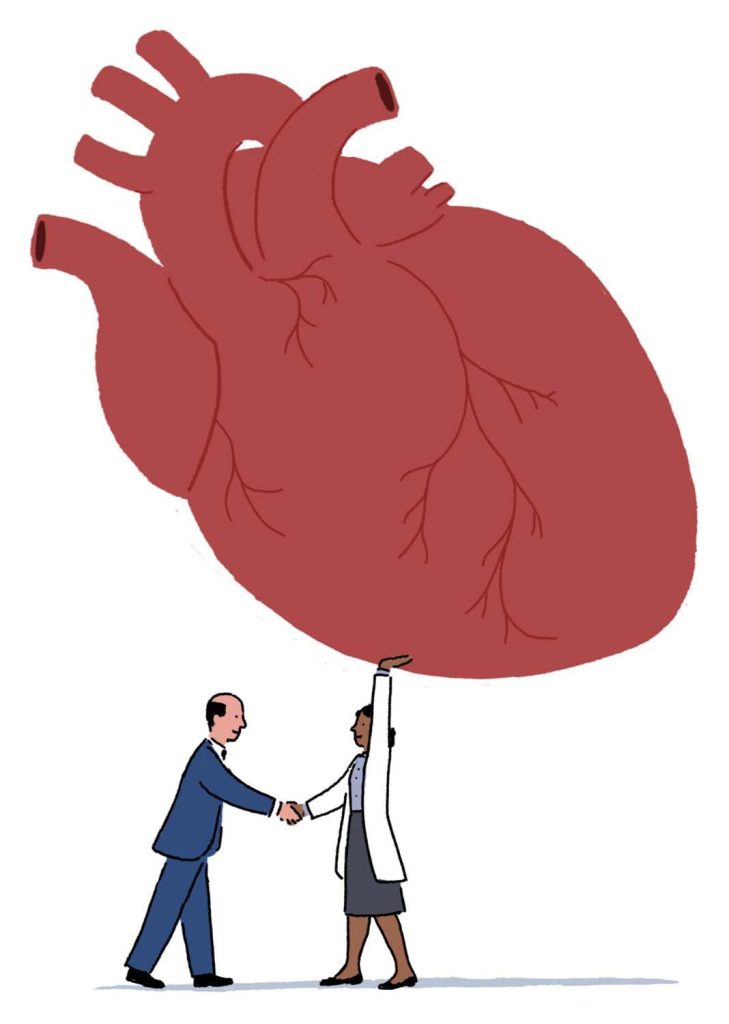
Philanthropy
Boost for new heart and lung research institute
A Cambridge institute dedicated to improving cardiovascular and lung health has received a £16m gift from Canadian entrepreneur Dr Victor Dahdaleh.
The Victor Phillip Dahdaleh Heart and Lung Research Institute is home to the largest concentration of scientists and clinicians in heart and lung medicine in Europe and opened in July 2022. It brings together population health, laboratory and clinical scientists, with NHS clinicians and patients, and aims to identify 10 new potential treatments or diagnostic tests for heart and lung diseases within five years.
Dr Dahdaleh praises Cambridge as “one of the greatest universities in the history of civilisation”. He says: “Over the years in which I have been supporting education and medical research around the world, I have realised the UK is a global leader in the prevention, identification and treatment of heart and lung diseases.
“I’m supporting this new Institute because, through collaboration with Royal Papworth Hospital and other leading institutions, it will enable a concentration of expertise that will make medical advances of international importance in these fields.”
In brief
The Brain Prize 2023
A Cambridge scientist has won the world’s most prestigious neuroscience award: The Brain Prize 2023, awarded by the Lundbeck Foundation. Professor Christine Holt was recognised for research that has revealed the precise mechanism by which brains ‘wire up’ during development, and actively maintain their wiring throughout life. This has provided key insights into the causes of neurodegenerative diseases.
Varsity success
Cambridge triumphed over Oxford in five sporting fixtures over a thrilling weekend of Varsity sport in March. The Light Blues won the 141st men’s Varsity Rugby Match in a hard-fought encounter, followed by The Boat Race the following day, where Cambridge won the 77th Women’s Race, the 168th Men’s Race and both Reserve races.
Four-day week trial
Fancy a four-day week? It reduces workplace stress and illness – and doesn’t adversely affect a company’s revenue, say a team of Cambridge social scientists running the world’s largest trial of the four-day week. In fact, 92 per cent of the companies trialling the policy say they intend to continue it after the trial.

